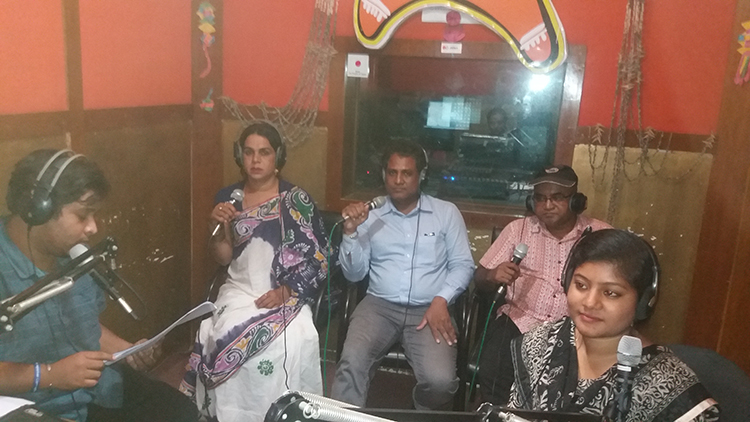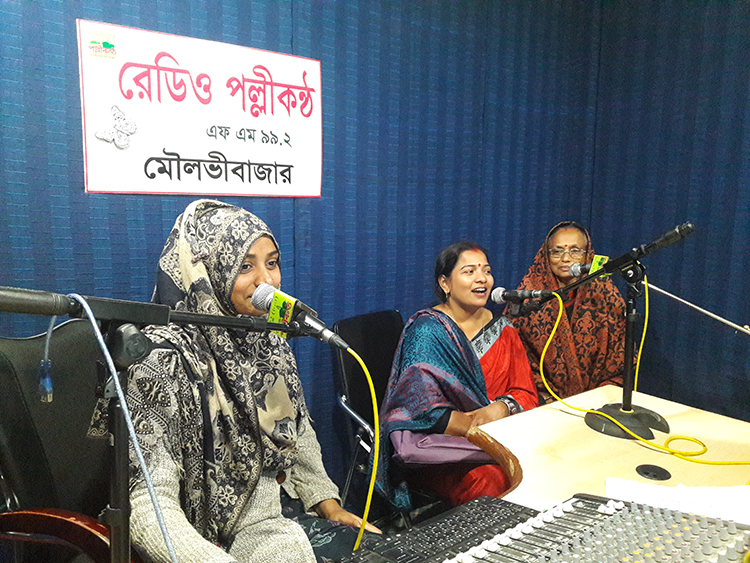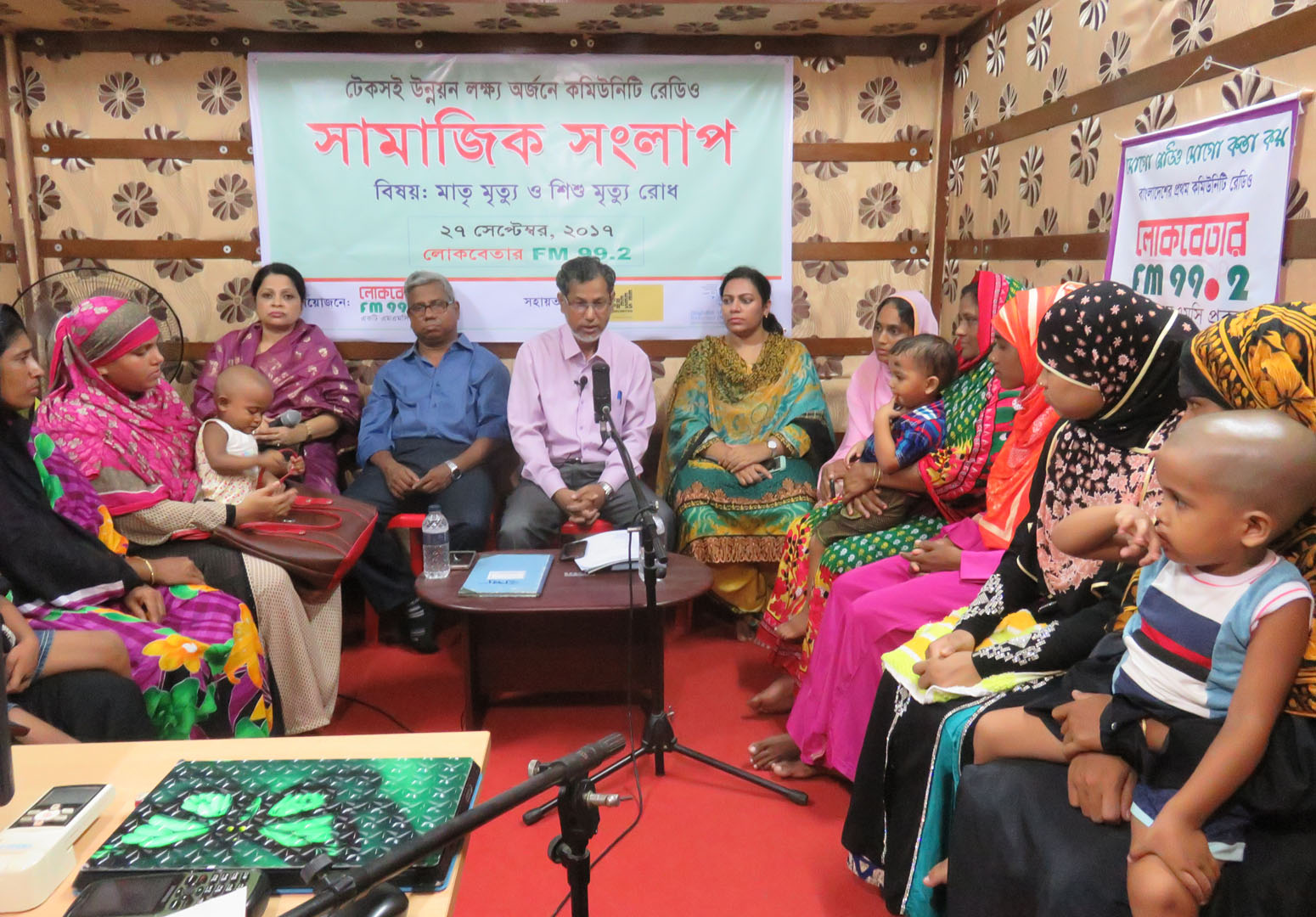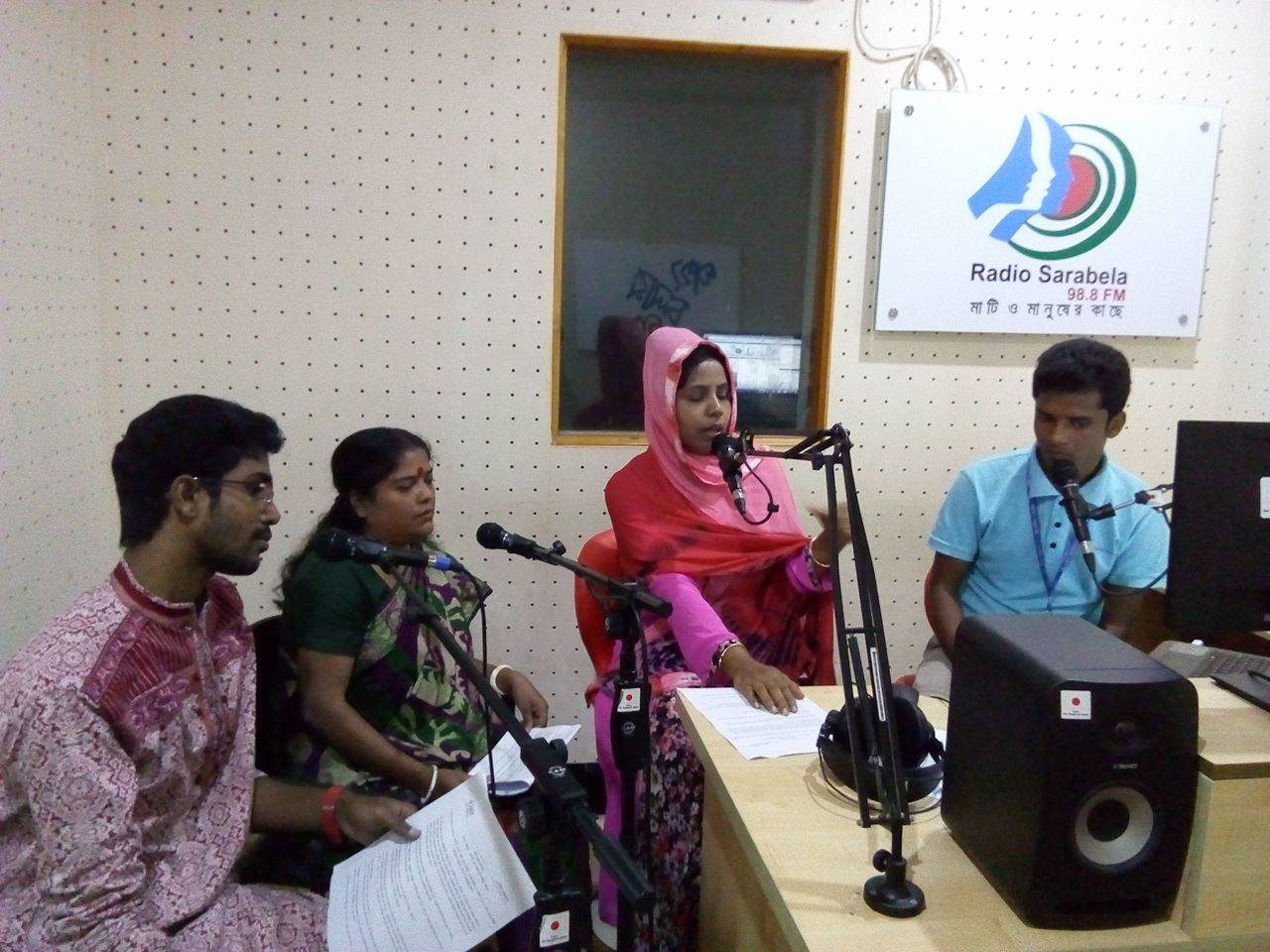Impact of Community Radio Bangladesh 2017
Empowering Third Gender through Community Radio in Bangladesh
In Bangladesh, Gender Diverse Population (Hijra Community) are socially excluded- living on the fringes of society, harassed by the police and abused by the public. Though most of them are involved in singing and dancing at the wedding ceremonies or child birth as a part of their traditional Badhai culture but a few of them are in begging and engage in sex trade. Violence against Hijra community, especially Hijra sex workers, is often brutal, and occurs in public spaces, police stations, prisons, and their homes too.
Rural communities in Bangladesh have yet to understand and recognize the multidimensional aspects of gender-identity discrimination and the physical and emotional effects of stereotypical perceptions experienced by Hijras. While the third gender has been recognized by the Government, Hijras continue to face extreme discrimination at present daily and in every aspect of their lives. From accessing healthcare services, education, safe living spaces, public transportations and constitutional rights. They severely deprive from the opportunities to earn a decent livelihood, and ultimately denied their basic human rights, respect and dignity. At present, there are 10,000 Hijras are living in Bangladesh.
Promoting Family Planning through Community Radio in Bangladesh
The directorate general of family planning under the ministry of health & family welfare is the key player to inform, educate and provide family planning services among community people in Bangladesh. Women in Bangladesh, especially young women and those residing in hard-to-reach areas, are unable to fully realize their reproductive rights and receive high-quality reproductive health care because of limited access to contraceptive services. So, to increase the availability of high-quality contraceptive services; educate and empower women to access the reproductive health care to which they are entitled; and advocate at the local & national level for improved reproductive health services. The project giving emphasizes reaching un-served and underserved populations, particularly adolescents and newly married women.
Social Dialogue for Achieving Sustainable Development Goals (SDGs) through Community Radio
Bangladesh NGOs Network for Radio and Communication (BNNRC) organized dialogues through community radios across the country during project period for sensitizing the disadvantaged communities about their participation in line with Sustainable Development Goals (SDGs) in line with SDGs localization.
The project interventions made the community more conscious to get access to public resources such as health, education and social protection. Particularly the project contributed towards institutional relationship between local government bodies and the community. As outcomes of the project, the community was sensitized on local development issues. The knowledge and awareness transmitted to the community will help them to act as responsible citizens which will help to improve the status of life and livelihood through Community Radio participatory program.
Countering Violence Extremism (CVE) through Community Radio in rural Bangladesh
Like many countries in the world Bangladesh facing the challenges of radicalization which caused violent extremism for more than a decade. The attack in Holy Artisan restaurant in Dhaka on 1 July 2016, Dhaka is very painful incident where more than 10 foreigners and some other local people including 2 police official and a army officer lost lives. This tragic accident is an eye opener which demonstrates that violent extremism can affect individuals of all educational levels and socio-economic backgrounds. It was observed that the youth are the most vulnerable group to be recruited for violent extremism. Later few more violent incidents occurred in different parts of the country by the extremist. It was found that they were misguided and used religion spirit for violence. Even they were detached from their families.




